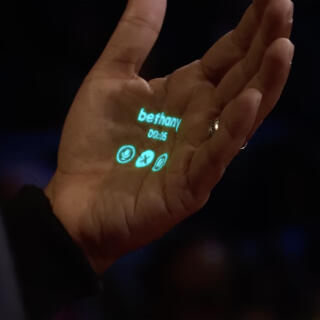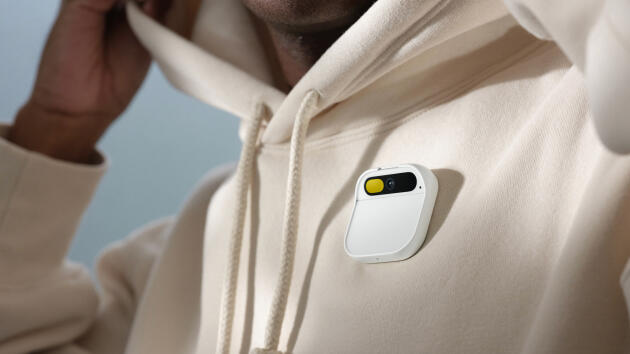


Are smartphones doomed to disappear?
In DepthThe golden age of smartphones may be coming to an end. In a saturated market, sales are plummeting, mainly due to a lack of major innovations over the past 15 years. In addition, a new generation of connected devices is overshadowing them.
Is your smartphone taking up space in your hands, weighing down your pocket and costing you more and more? Then forget it and move on to the new generation of digital companions. More discreet, less expensive and boosted by artificial intelligence (AI), they can be pinned to your lapel to listen to emails or make calls, worn on the wrist to track daily activities, slipped on a finger as a smart ring to manage health data or worn as an earpiece as a voice and music assistant.
Welcome to the post-smartphone era. Barcelona's Mobile World Congress, the mobile mecca to be held from February 26 to 29, is set to relegate cell phones to the background in favor of new, smaller, lighter, yet powerful and intuitive devices. The AI Pin is worn pinned to a garment or lapel. The Rabbit R1 is the size of a matchbox, includes a screen and slips into the smallest of pockets.
"The smartphone format has evolved to the point where it's difficult to innovate beyond what's currently available. Smartphones have also become a bit boring. So we wanted to give our users a fun, intuitive gadget," explained Chinese national Jesse Lyu, CEO of Rabbit, a company he founded in the United States.
The same approach was taken by the co-founders of start-up company Humane, both former Apple executives: ex-design director Imran Chaudhri and ex-software manager Bethany Bongiorno (also husband and wife). Their AI Pin, which can be worn as a brooch or on the lapel of a jacket, aims to "dispense with smartphones thanks to artificial intelligence at your fingertips." Gone are the days of keyboards and screens, replaced by more natural mobility. It can even project a virtual screen onto the palm of your hand or any other surface. With this gadget, which is fast becoming indispensable, the user speaks to it and gets the right answers, right away. It's as if the AI had gone and retrieved them from the user's computer or smartphone, yet these are nowhere in sight.

At this rate, some are predicting the end of the smartphone. Speaking at the World Economic Forum in Davos in May 2022, Pekka Lundmark, CEO of the world's former number one cell phone manufacturer Nokia, said: "By then [2030], definitely the smartphone as we know it today will not anymore be the most common interface. Many of these things will be built directly into our bodies." Ten years ago, the Finnish manufacturer turned the page on mobile phones by handing them over to Microsoft, which then threw in the towel.
Controlled by though
According to Olivier Parent, research director at the Comptoir Prospectiviste, a French institute for strategic foresight, "there's a good chance that the smartphone as we know it will disappear in the not-too-distant future." According to Parent, "It doesn't matter what the smartphone will be replaced by; It could just as easily be by pinned devices, rings, bracelets, glasses, lenses or biomechanical implants." And he mentioned Neuralink, the start-up co-founded in 2016 by Elon Musk to develop brain implants, the first of which was fitted on a patient on January 28. "This may be the first brick in the road that could lead to the adoption of these human-machine interfaces," the futurist argued.
You have 70.71% of this article left to read. The rest is for subscribers only.
